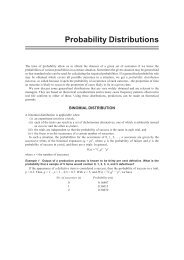International-Business-Dr-R-Chandran-E-book
International-Business-Dr-R-Chandran-E-book
International-Business-Dr-R-Chandran-E-book
Create successful ePaper yourself
Turn your PDF publications into a flip-book with our unique Google optimized e-Paper software.
Environmental Issues<br />
159<br />
<strong>International</strong> <strong>Business</strong>- <strong>Dr</strong>. R. <strong>Chandran</strong><br />
The WTO has no specific agreement on environment; it has a “Trade &<br />
Environment Committee’, which plays a limited role. There is increasing<br />
pressure by environmentalists on the WTO to take proactive measures to<br />
protect the environment. The US banned import of tuna fish from Mexico in<br />
accordance with its Marine Mammals Law, which has the mandate like<br />
dolphins. At that time Mexico appealed to GATT whose verdict went<br />
against the USA.<br />
Trade experts fear that free trade will be undermined in the guise of<br />
protecting the environment, if such issues find a place and are emphasized in<br />
the WTO. There are more than 200 Multilateral Environmental Agreements<br />
(MEAs) on various aspects of the environment. Twenty of these include<br />
provisions that can affect trade e.g., the Montreal Protocol for Protection of<br />
the Ozone Layer, the Basel Convention on Trade or Transportation of<br />
Hazardous Goods. The WTO is off the view that the most effective way of<br />
dealing with environmental issues is through international agreements.<br />
Dilemma of Developing Countries-<br />
Exports from developing countries continue to face significant market access<br />
impediments. Recent UN studies confirm that tariff peaks and tariff<br />
escalation still hamper developing country exports and their attempts to<br />
export new products such as beef, cigarettes, clothing, footwear and wooden<br />
articles.<br />
To gain access to new markets in developing countries, the developed<br />
counties are acting in the interests of transnational corporations. They have<br />
rapidly imposed new agreements in telecommunications, information<br />
technology, and financial services. The Millennium Round talks paved the<br />
way for further economic liberalization in both the traditional and new<br />
sectors, which is contrary to the interests of developing countries.<br />
For example, Washington has interpreted WTO agreements to protect key<br />
industries. For example the U.S. has selectively opened its markets in the<br />
field of textiles and clothing, but this liberalisation has proved of little<br />
benefit to the developing nations. Similarly, the U.S. has misused the<br />
measures designed to safeguard domestic industries from a sudden increase<br />
in imports. It has also introduced its own Rules of Origins, rules used to<br />
identify where textiles or clothing products come from, changing the<br />
Only for Private Circulation





